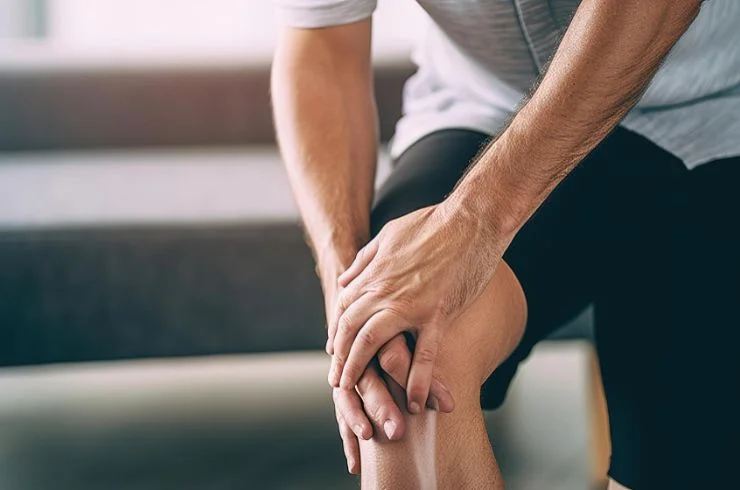Joint Pain Treatment

Joint pain is a widespread issue affecting people of all ages, primarily due to conditions such as arthritis, injury, or overuse. Commonly impacted joints include the knees, shoulders, hips, elbows, wrists, and ankles. This discomfort can range from mild irritation to debilitating pain, significantly impacting a person’s quality of life. Whether the pain is short-term (acute) or long-term (chronic), identifying the cause and providing appropriate treatment is crucial.
Common Symptoms of Joint Pain:
- Swelling
- Redness
- Stiffness
- Weakness
- Tenderness
- Loss of joint movement
Causes of Joint Pain:
Arthritis:
- Rheumatoid Arthritis (RA): An autoimmune disease causing joint inflammation, especially in the wrists and small joints of the hands and feet.
- Osteoarthritis (OA): Wear-and-tear arthritis leading to cartilage breakdown, particularly in the hands, knees, hips, and spine.
Bursitis: Inflammation of fluid-filled sacs (bursae) that cushion bones and tendons near joints, commonly affecting the shoulder, elbow, or hip.
Gout: A form of arthritis characterized by uric acid crystal buildup in joints, leading to sudden, intense pain.
Bone or Joint Infection: Osteomyelitis, often caused by bacteria, leads to chronic joint damage.
Cancer: Joint pain can be a side effect of cancer or its treatments, weakening the immune system and causing discomfort.
Injury: Sports or accident-related injuries, if left untreated, can lead to chronic joint pain.
Osteoporosis: This condition weakens bones, increasing the risk of fractures and related joint pain.
Tendinitis: Inflammation of tendons often occurs around the shoulder, knee, or heel.
Joint Pain Treatment Options:
1. Medications:
- Nonsteroidal Anti-Inflammatory Drugs (NSAIDs): Available in oral or topical forms to reduce inflammation.
- Capsaicin Cream: A topical treatment to reduce pain.
- Duloxetine (Cymbalta): May be used to manage chronic pain, including osteoarthritis.
- Steroid Injections: Intra-articular steroid injections reduce inflammation in conditions like RA or osteoarthritis.
- Hyaluronic Acid Injections: These can lubricate and cushion the joint for osteoarthritis relief.
- Antibiotics: For septic arthritis, antibiotics administered intravenously are essential.
2. Physical Therapy:
Physical therapy can help preserve joint function, strengthen surrounding muscles, and minimize stiffness. A therapist may recommend braces or walking aids to improve mobility. Regular exercise is especially beneficial for conditions like fibromyalgia to reduce both joint pain and fatigue.
3. Surgery:
Surgery is often reserved for advanced cases where other treatments have failed. Joint replacement surgery (like total knee or hip replacement) is a common solution for severe osteoarthritis. Alternatives like osteotomy may be considered for younger, active individuals to delay the need for joint replacement by reshaping the bones.
Advanced Joint Pain Care in Hyderabad:
With various treatment options, from medications to physical therapy and surgery, comprehensive joint care is available at specialized centers in Hyderabad. Orthopedic experts focus on individualized care plans to relieve pain, restore function, and enhance overall quality of life for those suffering from joint pain.
If you’re dealing with joint pain, it’s essential to consult a specialist who can provide a tailored approach based on the severity of your condition.
Services
- Ankle Pain Treatment
- Arthritis Pain Treatment
- Back Pain Treatment
- Cancer Pain Treatment
- Elbow Pain Treatment
- Fibromyalgia Treatment
- Foot Pain Treatment
- Headache & Migraine Treatment
- Hip Pain Treatment
- Joint Pain Treatment
- Knee Pain Treatment
- Lower Back Pain Treatment
- Middle Back Pain Treatment
- Neck Pain Treatment
- Nerve Pain(Neuropathic Pain) Treatment
- Orthopedic Trauma Treatment
- Osteoporosis Pain Treatment
- Shoulder Pain Treatment
- Slipped Disc Treatment
- Sports Injury Treatment
- Tailbone Pain Treatment
- Slipped Disc Treatment
- Trigeminal Neuralgia Treatment
- Upper Back Pain Treatment
- Vertebral Compression Fracture Treatment
